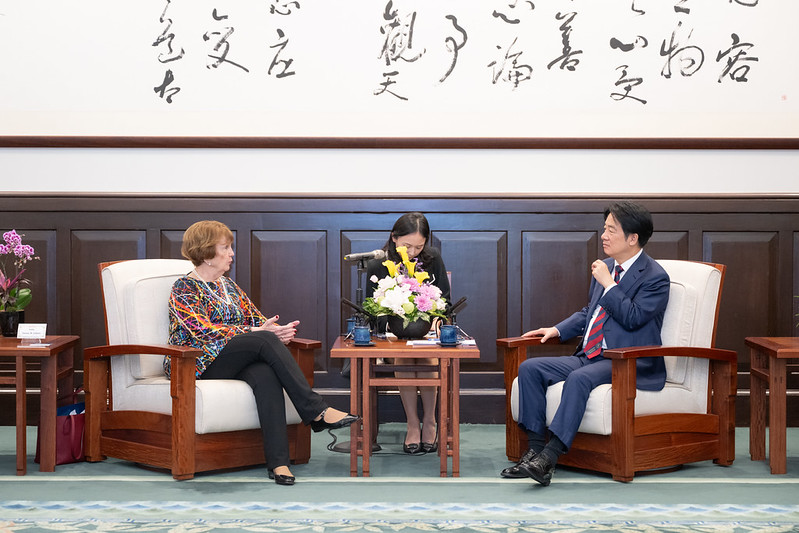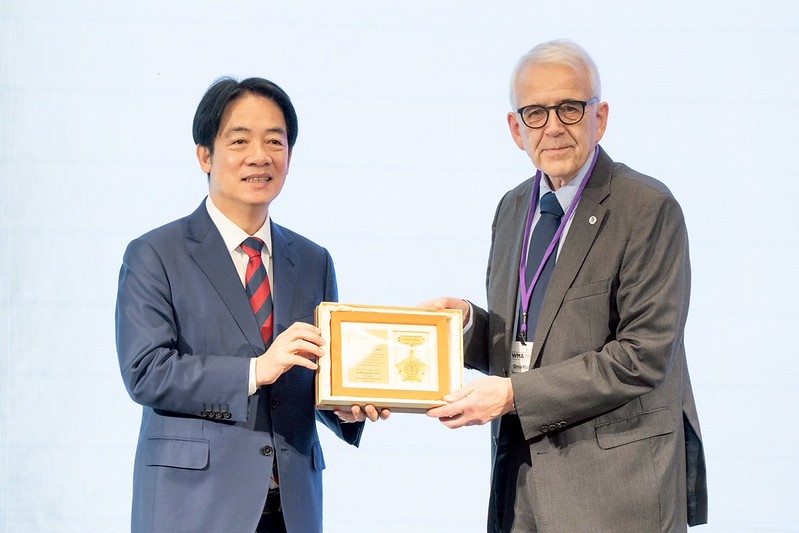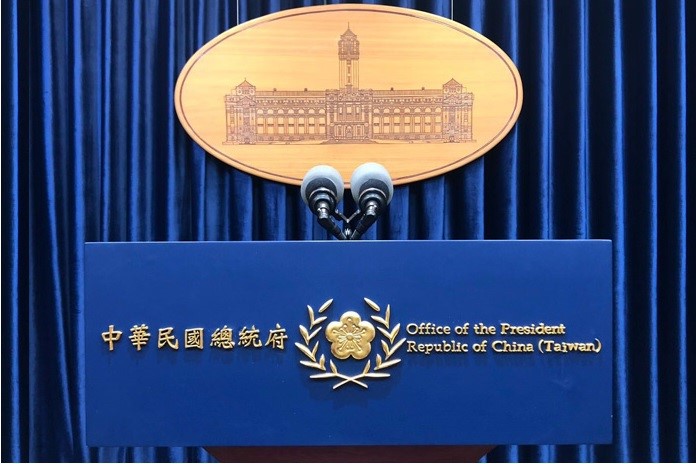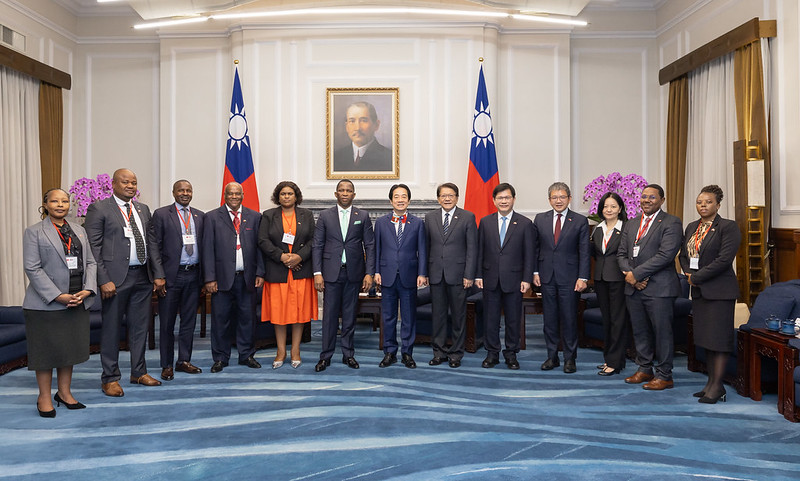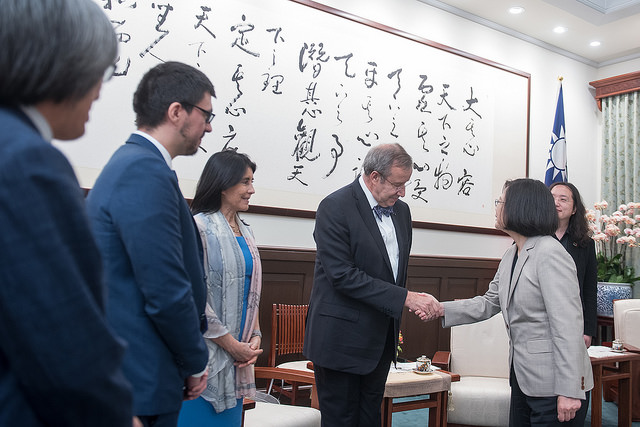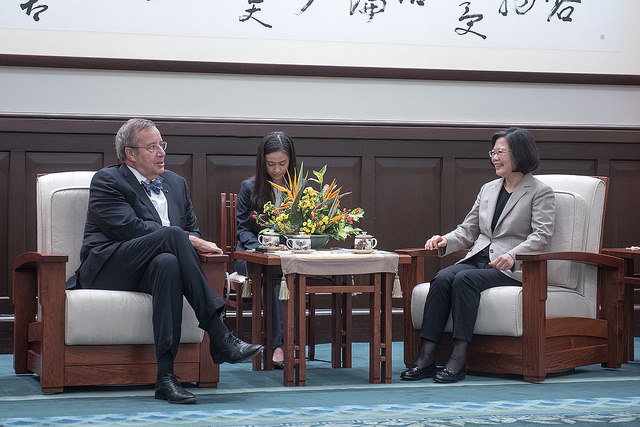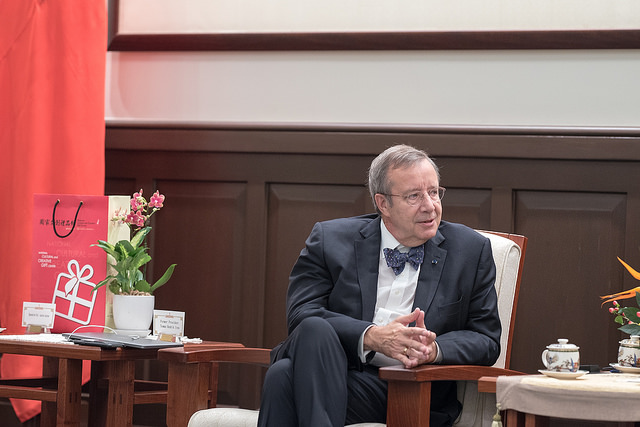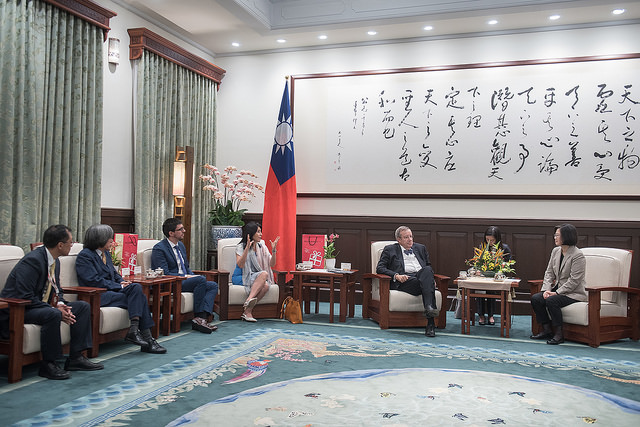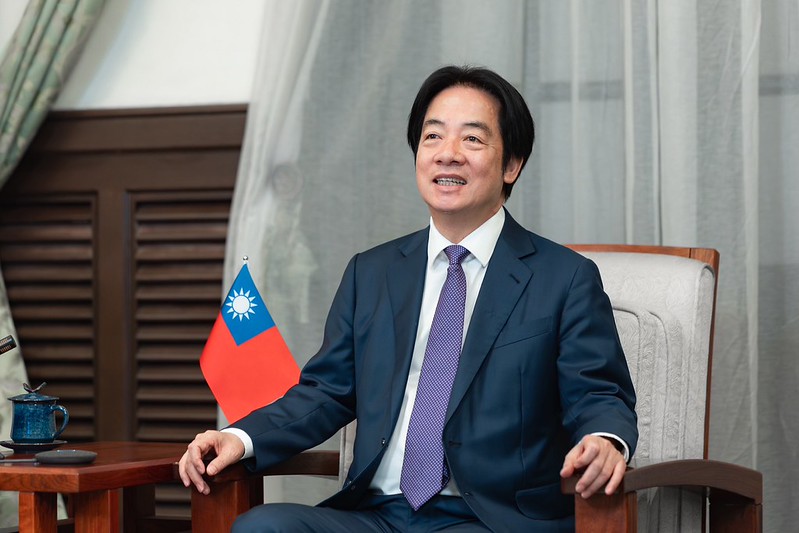News & activities
 News releases
News releases
On the morning of July 20, President Tsai Ing-wen met with a delegation of participants in the Digital Innovation Forum (DIF), an event organized by the APEC Business Advisory Council (ABAC). During the meeting, the president emphasized that Taiwan will continue to enhance cooperation with the APEC member economies to transform the "digital divide" into a "digital opportunity." Working together, she said, we can boost the Asia-Pacific regional digital economy's prosperity and development.
In remarks, President Tsai stated that the Digital Innovation Forum that opened the previous day in Taipei was the result of extensive efforts by Ambassador-at-Large Hung-Tze Jan (詹宏志), chair of the ABAC Digital Innovation Working Group (DIWG). The forum, she said, was co-hosted by Papua New Guinea and Taiwan. She then welcomed the distinguished guests to Taiwan and thanked them for participating and giving Taiwan their full support.
The president pointed out that Mr. Jan mentioned to her last July that as the digital economy develops, small and medium-sized economies in the Asia-Pacific region often face three difficulties: a "platform divide," a "data divide," and an "investment divide." Mr. Jan suggested holding a strategic conference on the digital economy and inviting other member economies to attend. President Tsai thought that was a good idea, so she instructed the Ministry of Foreign Affairs and related cabinet-level agencies to help make it happen.
President Tsai stated that this idea has now become a reality, thanked ABAC for its support, and also thanked Mr. Jan and the various cabinet-level agencies for their hard work. She also noted that the forum was addressing a wide variety of themes, bringing experts from many different fields—including artificial intelligence, technology, and digital innovation—to Taiwan to speak. In addition, she said, representatives of companies throughout the world as well as the 21 APEC member economies were here to take part in exchanges, and the results exceeded all expectations.
President Tsai also thanked former Estonian President Toomas Hendrik Ilves for making a special trip to Taiwan to share his experience. She noted that former President Ilves promoted digital governance, including paperless government and information security, making Estonia the most highly digitized nation in the world that countries in the Asia-Pacific region should seek to emulate.
President Tsai pointed that Taiwan is actively promoting a Digital Nation & Innovative Economic Development Program (DIGI+) to move towards a services-based digital government and open governance, directions that coincide with Estonia's "digital governance" policy. So we hope to do more experience sharing with Estonia in the future, she said.
Over the past two years, said President Tsai, Taiwan has been working to become a "digital nation and smart island." In addition to providing citizens with a smart lifestyle, this effort has also given industry a stable environment for innovation. Next week, she added, SMART ASIA Taiwan 2018 will take place in Taichung, and buyers from 45 different nations are expected to attend.
This succession of international exchange activities, said the president, shows Taiwan's effort and determination. We expect to be at the forefront of the digital age so that the world can see Taiwan's development. We also want to enhance exchanges with other countries, so that together, we can face the challenges of the digital age.
Noting that APEC economies are working on a vision for the Asia-Pacific region post-2020, President Tsai said she believes that exchanges at this forum, and the experience sharing by digital technology experts, will help point the way forward for member economies as they work to develop their digital economies and plan out their visions for the future.
President Tsai emphasized that Taiwan will continue enhancing cooperation with other APEC member economies, and work to transform the "digital divide" into a "digital opportunity." Working together, she said, we can increase prosperity and development in the Asia-Pacific region's digital economy.
